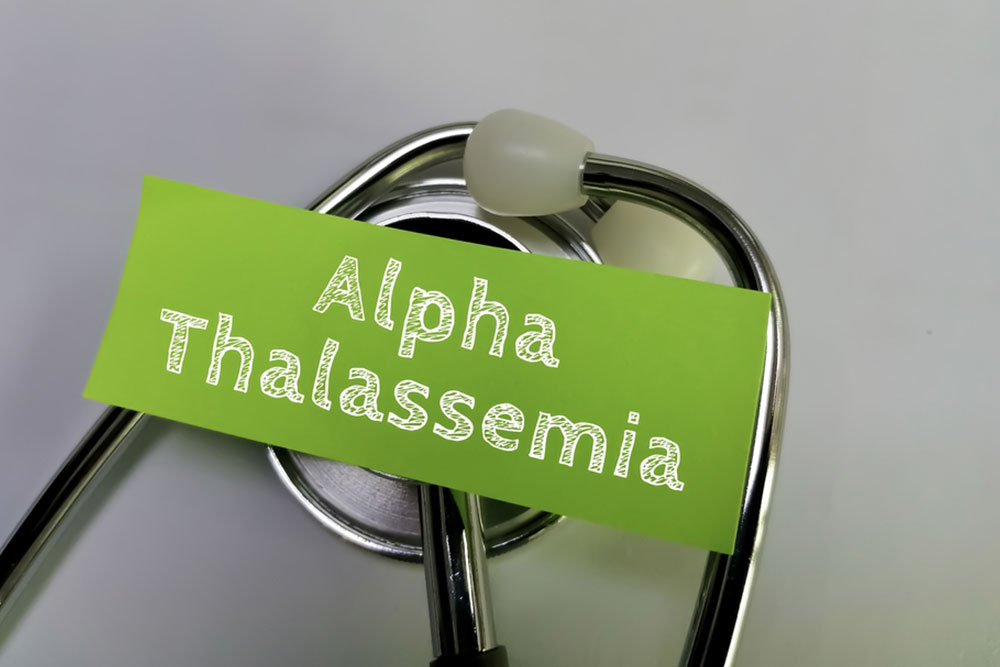
Alpha thalassemia – Causes, symptoms, and management
Also called inherited anemia, alpha thalassemia is a condition in which the body cannot produce normal amounts of hemoglobin—the protein in red blood cells. Hemoglobin carries oxygen throughout the body. The primary hemoglobin in adults, hemoglobin A, has alpha- and beta-globin chains. When affected by alpha thalassemia, one does not have the required number of alpha-globin chains. The condition can result in mild or severe anemia, depending on its type.
Causes
Alpha thalassemia develops when some or all of the four genes that make alpha alpha-globin chains are damaged or missing. Broadly, there are four kinds of alpha thalassemia based on the cause:
- Alpha thalassemia major: Here, all four genes that make up alpha-globin chains are absent, resulting in severe anemia. In most cases, a baby with this condition dies before birth.
- Hemoglobin H disease (HbH disease): Here, three genes are absent, so the body has one functional alpha-globin gene. This can cause mild to severe anemia. One may experience a fever that may even worsen when exposed to infectious agents, chemicals, or prescription treatments. Blood transfusions are required to manage the condition. Further, a child with this type is at a high risk of developing alpha thalassemia major.
- Alpha thalassemia carrier: In this type, two genes are absent, so one experiences mild anemia.
- Alpha thalassemia silent carrier: Here, a single gene is damaged or missing, but the other three are functional. Here, the blood tests may show normal results, but the RBCs could be smaller than usual. As a silent carrier, one will not experience any symptoms but may pass on the damaged gene to the child. DNA tests can help confirm that one has this type of alpha thalassemia.
This is a hereditary condition that is passed down from either one or both parents. The sole risk factor associated with thalassemia is having a parent affected by the disease.
Symptoms
Symptoms of the condition can vary according to the type. If one has silent alpha thalassemia, they may experience no symptoms. When 2 genes are affected, one may experience mild symptoms of anemia, like feeling exhausted or somewhat fatigued after moderate-intensity exercise. However, if a fetus inherits alpha thalassemia major, it could be fatal. Hemoglobin H disease results in mild to severe signs, such as exercise intolerance and fatigue. One may also experience other symptoms, such as an enlarged spleen or liver, leg ulcers, and yellowish skin.
Diagnosis
The diagnostic method can vary depending on the type of condition one suspects: on the disease’s severity.
- Silent carriers can usually be diagnosed through genetic testing. A complete blood count may not confirm the presence of alpha thalassemia in this case. Further, this type is usually confirmed when the child is born with HbH disease.
- The minor form of the condition, where two genes are missing, can sometimes be detected during newborn screening tests. But, a routine CBC usually is the best test to identify this type. However, here, upon noticing the small RBCs, the doctor may first diagnose the condition as anemia or iron deficiency. Then, anemia and beta thalassemia have to be ruled out by genetic testing.
- Doctors mostly detect HbH disease during newborn screening, closely monitoring such children. Additionally, some adults can be diagnosed with this condition later in life when being examined for anemia.
- The major form of the condition can be determined if the fetus or child develops hydrops. Here, the fetus has fluid accumulation, which makes doctors conduct a comprehensive evaluation to determine the underlying cause.
Most newborns undergo a series of tests to check hemoglobin levels and detect any abnormalities. These help doctors identify the type and severity of thalassemia if detected.
Management options
Usually, one does not have to seek treatment for silent or minor forms of alpha thalassemia. However, to deal with mild anemia, doctors may recommend folic acid supplements. However, those with moderate to severe forms of the condition may have to take up the following treatment options:
Blood transfusions: Those with HbH disease have moderate anemia. But they may occasionally require transfusions when dealing with sickness or a fever because of accelerated RBC breakdown. The frequency of transfusions is higher in adults. People with hemoglobin H-Constant Spring, a more severe variant of HbH disease, require frequent transfusions in their lifetime.
Iron chelation therapy: This treatment reduces the iron overload in the system. Excessive iron absorption in the small intestine can cause this condition, even in the absence of blood transfusions. Chelation can help remove excess iron from the body.




